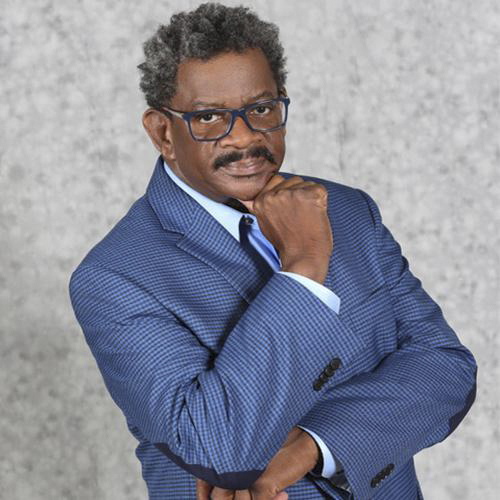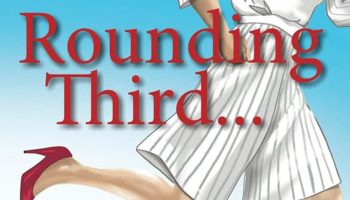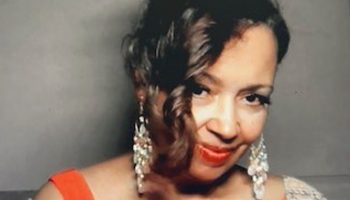The first time the Rev. Dwight D. Andrews served as chaplain-in-residence at Chautauqua, in 2015, he told the congregation that he’d find ways to play his saxophone in church more, and that he would continue to work toward growing the church. It was a promise he kept.
“Chautauqua was a revelation for me on many levels and I hope that we will cook something up this week,” Andrews told The Chautauquan Daily in 2016, when he again came to preach for a week. “And I have had conversations with my colleagues on how to make the church grow.”
Andrews returns to Chautauqua this week to give the Week Nine installment of the African American Heritage House Chautauqua Speaker Series, at 3:30 p.m. today in the Hall of Philosophy.
It’s during a week themed “A Vibrant Tapestry: Exploring Creativity, Culture and Faith with Smithsonian Folklife Festival” and, given the two weeks he’s spent in residence on the grounds — 2015’s Interfaith Lecture theme of “Art, Politics, Religion,” and the 2016 Chautauqua Lecture Series theme of “America’s Music with Wynton Marsalis and Jazz at Lincoln Center” — he’s developed somewhat of a pattern, as he sees his preaching, teaching, community work and music, all as separate parts of a single, unified public ministry.

Andrews, who is pastor of First Congregational Church in Atlanta, was ordained in the United Church of Christ in 1978, holds both a bachelor’s and master’s in music from the University of Michigan, and his Master of Divinity and doctorate in music theory from Yale University. His career has included several positions at Yale, including as resident music director of the Yale Repertory Theatre from 1979 to 1986, which led to a long relationship with theater director Lloyd Richards and playwright August Wilson.
Andrews went on to service as the music director for the Broadway productions of Ma Rainey’s Black Bottom, Joe Turner’s Come and Gone, The Piano Lesson, and Seven Guitars. As a musician, he’s created music for film and dance and recorded on over 20 albums and performed throughout the world.
“My life and vocations represent the intersection of all three,” Andrews wrote in a guest column for the Daily during 2015’s “Arts, Politics, Religion.” It’s tempting to bask in all that Chautauqua has to offer, Andrews wrote, but he wanted to call attention to longstanding issues surrounding the separation of church and state, increasing violence, and the important role that religious heritage has played in the American body politic.
The church has always had to confront the issues of its day, Andrews wrote — from chattel slavery, to Reconstruction, Jim Crow, through the Civil Rights Movement. At the time of his writing, the Supreme Court had, through Obergefell v. Hodges, ruled that the right to marry was guaranteed to same-sex couples. This was an equally important moment in America’s history.
“An important part of what it means to be an American is to find oneself squarely in the thick of the ongoing and collective struggle toward a more perfect union,” he wrote. “That dynamic struggle is simultaneously political, religious and cultural.”
If the church is at the crossroads of America’s moral journey, it has also been at the center of violence. Andrews wasn’t just writing following Obergefell v. Hodges; he was writing a month after the racist massacre at Mother Emanuel AME church in Charleston, South Carolina — “fresh evidence of a wounded society.”
“To appreciate the many manifestations of violence in America, we must acknowledge the connections between culture, commerce and the sense of alienation that many in our community feel,” Andrews wrote, outlining the proliferation of guns, the strength of the gun lobby, and an ever-growing, ever-alienating digital world. “… The community is built on consumption. Some will pay for it and others will kill for it. All of this as our neighborhoods, schools and houses of worship seem as racially segregated as they were 50 years ago.”
The arts, Andrews wrote, “represent a mirror or snapshot of our world at any point in time.” He cited Coltrane’s musical response to the 16th Street Baptist Church bombing in Alabama, Nina Simone’s “Mississippi Goddam” protesting that same bombing, and the murder of Medgar Evers — the list went on.
“The artistic responses of the people at any time are always fluid and dynamic,” Andrews wrote. “I am not sure what the art of our time is telling us, but clearly we need to pay attention.”
Politics and religion have always been intertwined in America, and the American Experiment has always “been a rich negotiation between religion, politics and culture,” Andrews wrote for the Daily. “The evolution of our perspectives and the influence of one upon the others are unmistakable. The seemingly intractable problems of our time can appear to be so vast and complicated that we are tempted to give up and give in to the status quo. Yet Jesus’ model of ministry was to wade into the affairs and afflictions of the day.”
That model of social transformation, Andrews wrote, is undertaken one person at a time.
“This is an opportune moment for artists, audiences and people of faith and goodwill to connect the important issues of our time with our creative expressions,” Andrews wrote, “and to not underestimate the impact one has on the other.”




